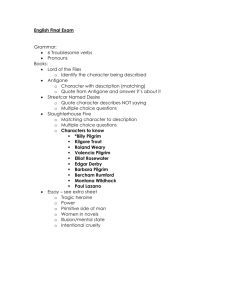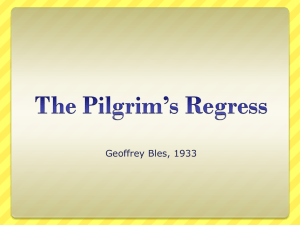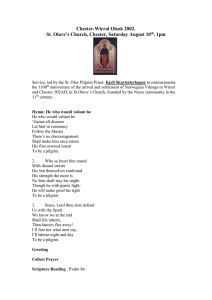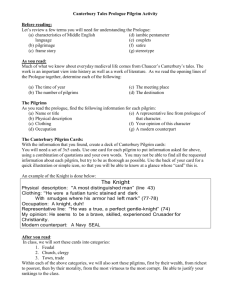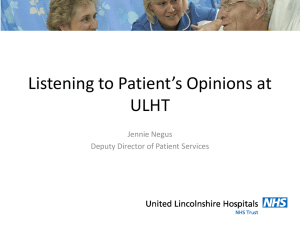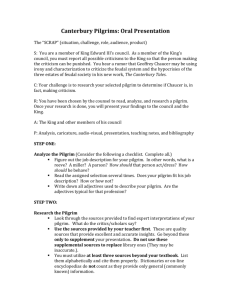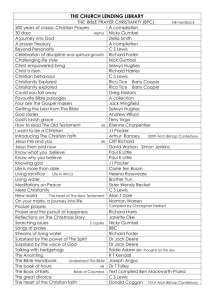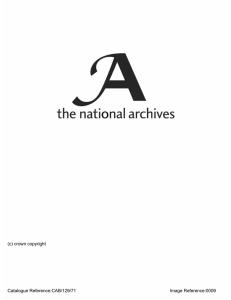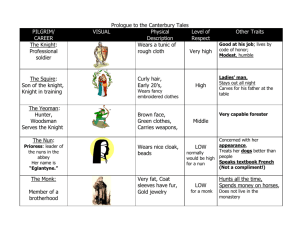The Pilgrim Course Pilgrim is a series of eight six week courses, with
advertisement
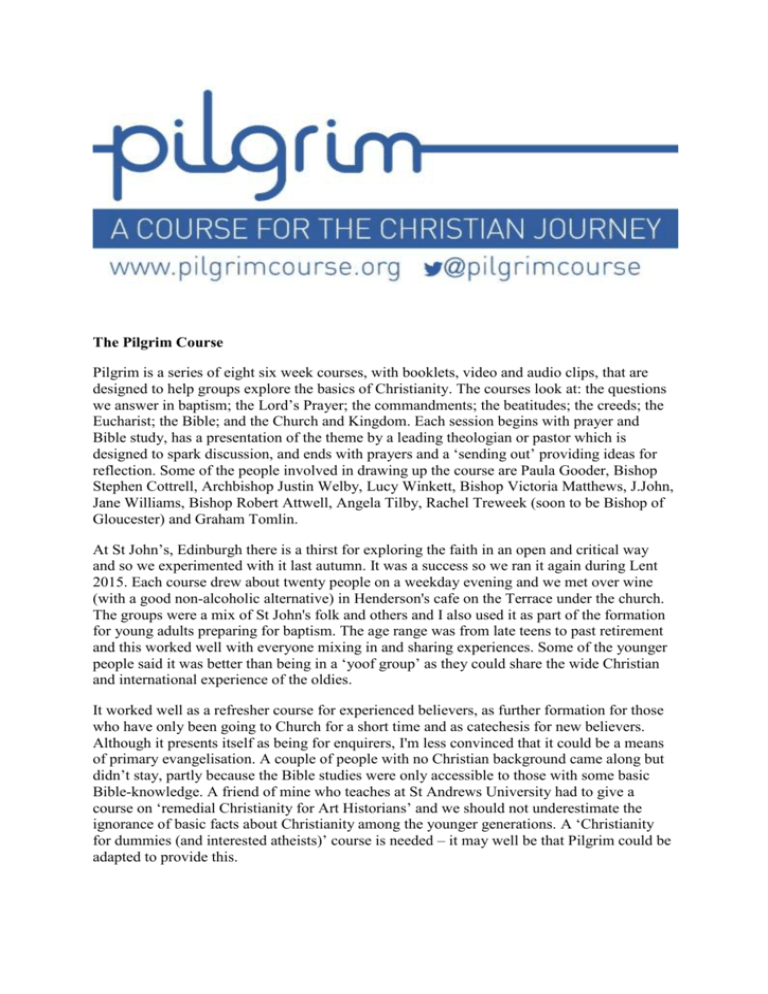
The Pilgrim Course Pilgrim is a series of eight six week courses, with booklets, video and audio clips, that are designed to help groups explore the basics of Christianity. The courses look at: the questions we answer in baptism; the Lord’s Prayer; the commandments; the beatitudes; the creeds; the Eucharist; the Bible; and the Church and Kingdom. Each session begins with prayer and Bible study, has a presentation of the theme by a leading theologian or pastor which is designed to spark discussion, and ends with prayers and a ‘sending out’ providing ideas for reflection. Some of the people involved in drawing up the course are Paula Gooder, Bishop Stephen Cottrell, Archbishop Justin Welby, Lucy Winkett, Bishop Victoria Matthews, J.John, Jane Williams, Bishop Robert Attwell, Angela Tilby, Rachel Treweek (soon to be Bishop of Gloucester) and Graham Tomlin. At St John’s, Edinburgh there is a thirst for exploring the faith in an open and critical way and so we experimented with it last autumn. It was a success so we ran it again during Lent 2015. Each course drew about twenty people on a weekday evening and we met over wine (with a good non-alcoholic alternative) in Henderson's cafe on the Terrace under the church. The groups were a mix of St John's folk and others and I also used it as part of the formation for young adults preparing for baptism. The age range was from late teens to past retirement and this worked well with everyone mixing in and sharing experiences. Some of the younger people said it was better than being in a ‘yoof group’ as they could share the wide Christian and international experience of the oldies. It worked well as a refresher course for experienced believers, as further formation for those who have only been going to Church for a short time and as catechesis for new believers. Although it presents itself as being for enquirers, I'm less convinced that it could be a means of primary evangelisation. A couple of people with no Christian background came along but didn’t stay, partly because the Bible studies were only accessible to those with some basic Bible-knowledge. A friend of mine who teaches at St Andrews University had to give a course on ‘remedial Christianity for Art Historians’ and we should not underestimate the ignorance of basic facts about Christianity among the younger generations. A ‘Christianity for dummies (and interested atheists)’ course is needed – it may well be that Pilgrim could be adapted to provide this. What worked well was that the courses presented the basic texts and teachings of Christianity in a clear and orthodox way and encouraged open discussion in a context of prayer. There was no attempt to force a particular view and the discussions ranged in all sorts of directions. As a priest who was confident in the content of the course I tried to take a back seat and let the discussion in the small groups take their own course but in feedback the group asked me to take a more prominent role, go round the groups and allow myself to be used as a theological resource. To work well the groups need a confident leader who has a good grasp of theology and Christian life. There is a good leaders’ book. In future we hope to develop lay leadership of such groups but this will not happen without an adequate theological formation for the laity. Other churches in the diocese have experimented with Pilgrim and I hosted a meeting at my flat to share experiences with group leaders from Christchurch Morningside, Falkirk, Haddington, St David's Pilton and Old St Paul's. These church groups differed greatly in size and social and educational background but the experience was almost uniformly good. Pilgrim did the job and was able to be translated into different contexts. It was felt by the St John’s people that Pilgrim avoided the ideological baggage and hard-sell of the Alpha Course (this is obviously a partial view....). As a resource produced by the Church of England I wondered at first if it would be too English and need a supplement to speak to our distinctive Scottish Episcopalian tradition but, probably because it deals with the basics of the faith, this was not so. A young Estonian couple of Lutheran and Orthodox background in our groups fitted in happily. On the basis of our experience I hope other churches experiment with Pilgrim as part of their mission and formation programme. More details and resources can be found at www.pilgrimcourse.org and the booklets can be purchased at the Cornerstone Bookshop at St John’s, www.cornerstonebooks.org.uk (0131 229 3776). Stephen Holmes, Associate Rector of St John’s
